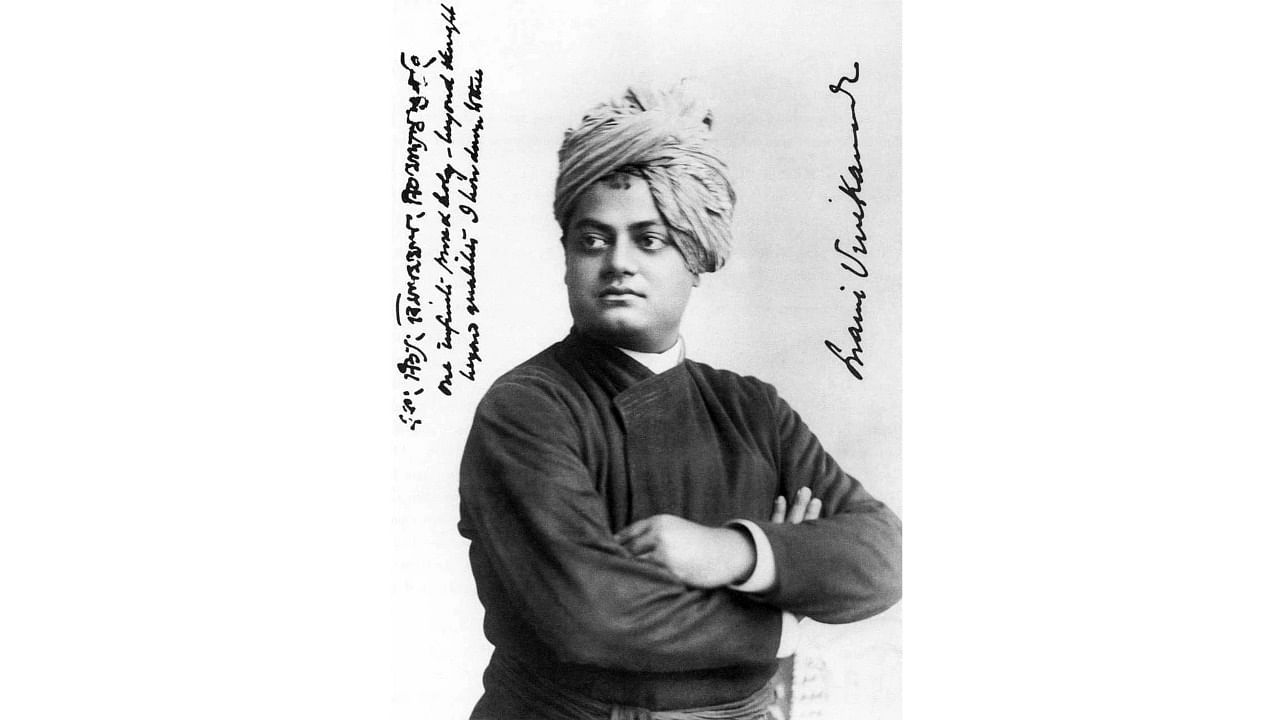
He was born on January 12, 1863, and is credited with the revival of Hinduism. He was 30 years of age when he spoke before a learned amalgamation of delegates gathered at the Chicago Parliament of the World’s Religions on September 11, 1893. He conclusively proved before the august gathering that the tenets of Hinduism were all-encompassing and that Hindu religion stood not just for tolerance but universal acceptance.
We can still feel the vibrations of his deep, soothing voice enthralling the vast audience in a foreign land when he said, “I am proud to belong to a religion which has taught the world both tolerance and universal acceptance. We believe not only in universal toleration, but we accept all religions as true. I am proud to belong to a nation which has sheltered the persecuted and the refugees of all religions and all nations of the earth.”
He used two shlokas in his speech, one from the Bhagwad Gita and the other one, a Shiv Mahim Stotram – both saying that all types of prayer, conducted in different ways, reach God. He gave many lectures in America and became famous due to his thoughts and his oratory.
Vivekananda was concerned that Hindu religion had been turned into a “kitchen religion” and “don’t touch me religion.” He referred to the scriptures to show that the divine, the absolute, exists within all human beings regardless of social status and caste. He was honest in his criticism of the social practices that kept India backward. He was against caste discrimination and intolerance. He was a religious reformer as well as a social reformer. He revolutionised the traditional image of the Hindu monk, the sanyasi, in India by making social service an integral part of the sanyasi’s life. He believed that a country’s future depended on its people and his teachings focused on the physical and mental development of the people. He once told students that they would be nearer to God through football than through the study of the Gita.
Vivekananda wandered throughout the country, and his voice was heard from Kanyakumari, the southern tip of India, to Bengal. He was the monk who followed the tradition of Buddha and established the Ramkrishna Matha at Belur, bringing up an order of monks who served the world. He also started the Ramakrishna Mission as a philanthropic, volunteer organisation to work for the good of humanity.
Before Vivekananda, many social reformers and monks had tried to change the status quo of the Indian masses, but none succeeded in the way he did. Truth is, Vivekananda laid bare his heart and poured out the knowledge and feeling of Hinduism to the masses as no one had before. In a way, he was the first proponent of the ‘Right to Information’ and made available the Vedanta literature to all irrespective of caste. He declared that all human beings were equal in theory and in practice and God was present in everybody. In fact, all are an embodiment of God (Aham Brahmasmi). So, there can be no discrimination. Vasudhaiva Kutumbakam (The world is one family) was not a mere slogan for him.
The knowledge that was kept under wraps had to wait for the right person and the right time. Vivekananda made it all public as he was of the view that every person had the right to know our ancient knowledge, because that legacy belonged to all.
It is an injustice to him that his teachings have been given a decent burial and now India has become a country that differentiates on the basis of religion in giving citizenship to persecuted refugees. Vivekananda is remembered for the sake of it, but nobody bothers to live by his high ideals. In the present scenario, religious leaders are silent, political leaders are playing the blame game, social media is creating havoc, electronic media is busy in debates where each one spews venom on the other. There is still a semblance of hope only in the print media.
The coming Assembly election in Bengal is going to be a testimony to all the showbiz, when every party would invoke Swami Vivekananda to declare that they are nearer to his ideals. Dirty games will be played, nationalistic feelings will be provoked and violence may happen. It is a time when everybody who loves India should come forward and assert that no politics would be allowed in the name of Vivekananda.
The way forward is to remember the teachings of Vivekananda, in every educational institution and at every forum. The national and regional media has to popularise the teachings of Vivekananda, perhaps by giving a slot once a month to air his views as he presented them. The war against communalism, religious hatred, fanaticism and low mentality can be surmounted only by large-hearted thinking of religious harmony and acceptance of divergent views as enunciated by Vivekananda.
“Arise, awake, and stop not till the goal is reached.” Katha Upanishad